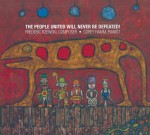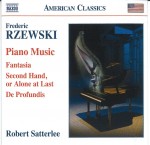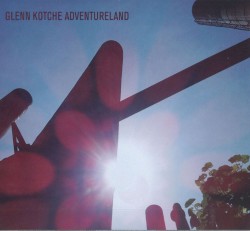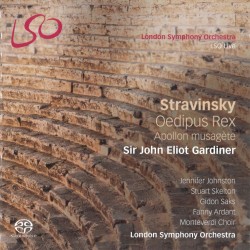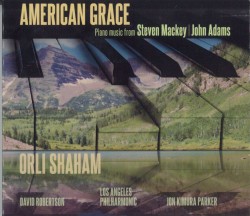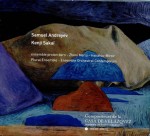American Art - Amy Porter; Christopher Harding
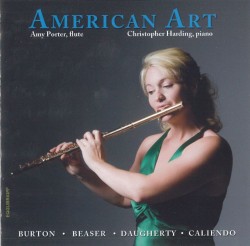 American Art
American Art
Amy Porter; Christopher Harding
Equilibrium EQ 114 (equilibri.com)
This CD’s title, American Art, is a good fit for the hour or so of music it presents. The three long compositions on it, Eldin Burton’s Sonatina, Robert Beaser’s Variations, Christopher Caliendo’s Flute Sonata No.3 and the one short piece, Michael Daugherty’s Crystal, are all creations of highly accomplished composers, and have an unmistakably American sound. They could not have been written anywhere else. As a matter of interest, they are also all tonal; not in a way that is slavishly imitative of the great ones of the past, but in a way that brings to life a broad palette of human experience, singing, dancing, weeping and rejoicing its way into the souls of performers and listeners alike, in a uniquely contemporary way.
Above all, the performances are a flawless collaboration between flutist Amy Porter’s confident and authoritative artistry and Christopher Harding’s superb work on the piano. He caresses the keys, bringing fluidity and lyricism that you don’t always hear from pianists; and Porter, with her incomparable technique, incisive articulation and varied dynamics, is a match for everything the composers throw at her.
The duo’s sparkling teamwork as well as the virtuosity of both players is particularly evident in the short final movement of Caliendo’s Sonata, “Bronco Buster.” In the second movement of Beaser’s Variations Porter’s effortless and gradual movement from primordial stillness to breathtaking excitement and intensity is a good example of her artistry.
This recording opens a window on the possibilities of contemporary music and a side of life south of the border that you will never hear about on the news!


